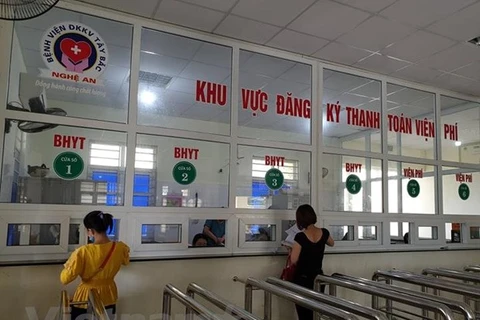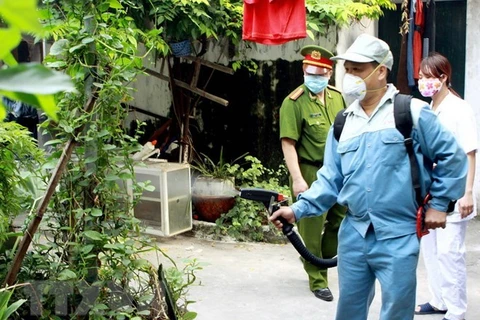Hanoi (VNS/VNA) — The Ministry of Health has set out a plan to promote e-payments, or cashless payments, in the health sector, especially for health check-ups and treatment services at medical facilities nationwide.
Speaking at an online conference on September 20 in Hanoi, Minister Nguyen Thi Kim Tien said the implementation of non-cash payments will be an important task of the health sector.
Tien said that non-cash payments have many benefits, including improved safety, speed and accuracy. It also allows people to access and make payments not only within the country but even globally.
The minister further said there are still many difficulties in expanding cashless payments in the health sector, such as low rate of hospitals using cashless payment systems or shortcomings in connecting with banking software or between organisations providing intermediary services and information systems of hospitals.
At the event, the health ministry requested units in the sector to develop action plans, resources and conditions to implement suitable non-cash payment solutions.
The ministry asked hospitals and health facilities to actively deploy various forms of electronic payments for hospital fees and tuition, such as via credit card, smartphone, electronic wallets and electronic payment gateways.
At the same time, the health sector will also promote communication and strengthen people’s awareness on the significance and important utilities of non-cash payment, encouraging people to use cashless methods in paying hospital fees and tuition.
State Bank of Vietnam Deputy Governor Nguyen Kim Anh said that the bank will continue to work with the health sector in improving people’s experience and satisfaction in paying treatment fees, reducing queues, contributing to improving the quality of check-up and treatment services.
The SBV also suggested commercial banks research and apply incentive policies and affordable service fees for payment of hospital fees and implement incentives, promotion and discount programmes to change habits and behaviours of customers in paying hospital fees from cash to e-payments.
A report of the SBV shows that around 50 per cent of Vietnamese people still do not have bank accounts or e-payment cards. Fees for cashless payments are still high and there is a lack of payment methods for medical services at hospitals in mountainous and remote areas, hindering the development of non-cash payments in the health sector.
Vietnam currently has more than 70 banks providing Mobile Banking and 31 e-wallets of intermediary payment service providers that can participate in providing cashless payment solutions. Nearly 14,000 health facilities use bank accounts nationwide./.
source
























